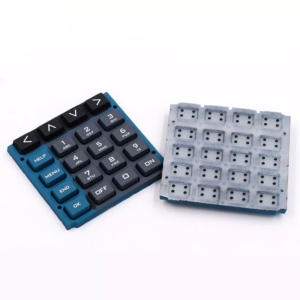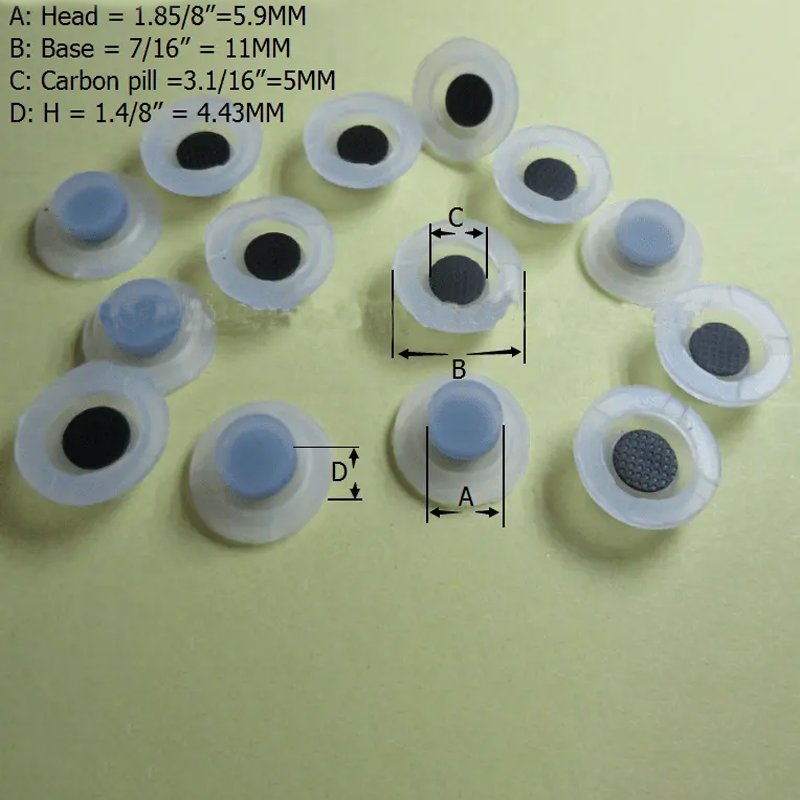SILICONE KEYPAD PARTNER
Overview:
Carbon pills, also referred to as electrically conductive pills, serve as the crucial interface between the keypad and PCB, facilitating electrical conductivity. Typically composed of a blend of 60% silicone elastomer and 40% conductive carbon black, they are manufactured through die-cut molding and compression molding processes. Carbon pills find extensive application in control devices such as phone keypads and remote keypads, where they play a vital role in switch systems.
Factors Influencing Carbon Pill Quality in Silicone Keypads
The quality of the conductive carbon pellets has a significant impact on the overall performance of the silicone keypad. During the vulcanization process, too low a temperature and too short a vulcanization time will prevent the carbon pellets from bonding properly to the silicone keypad, resulting in delamination problems. In addition, high mold temperatures can increase the fluidity of the silicone raw material, resulting in molding defects and poor carbon pellet bonding. In addition, incomplete venting can lead to air entrapment, which affects the stability of both the rubberized keypad and the carbon pellet. Low molding pressure and insufficient silicone material can further increase the risk of carbon pellet delamination from rubber keypads.
Why Choose the Carbon Pills:
- Enhanced Durability: Rubber keyboards with carbon pills offer superior durability due to the high-quality materials used, ensuring long-lasting performance even with frequent use.
- Reliable Conductivity:The presence of carbon pills facilitates efficient electrical conductivity, ensuring reliable performance and consistent functionality of the keyboard over time.
- Improved Keypad Integrity: Carbon pills enhance the structural integrity of the rubber keyboard, minimizing the risk of key malfunctions or detachment, thus ensuring a seamless user experience.
- Resistance to Environmental Factors: Rubber keyboards with carbon pills are resistant to environmental factors such as temperature fluctuations and moisture, ensuring optimal performance in various conditions.
- Reduced Maintenance: With carbon pills, rubber keyboards require minimal maintenance, reducing the need for frequent repairs or replacements, thereby saving time and costs in the long run.
- Versatile Applications: These keyboards find applications across various industries and devices, including electronic appliances, medical equipment, and industrial machinery, owing to their reliability and versatility.
